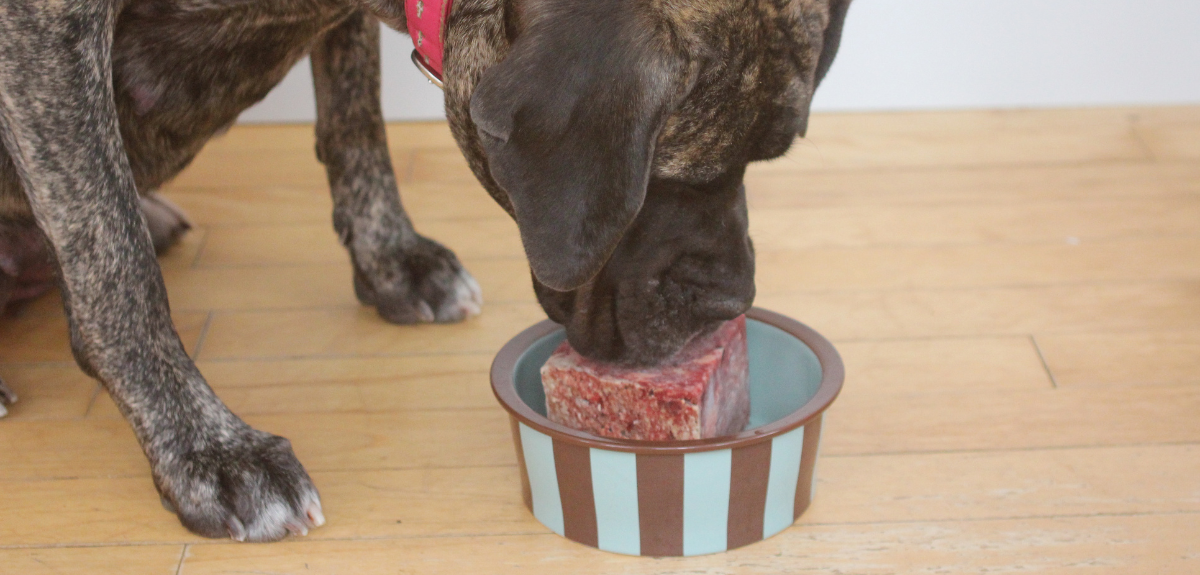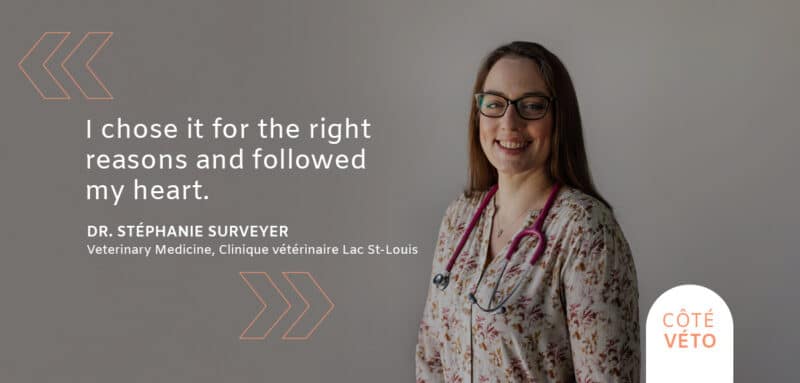Feeding raw food, also known as raw feeding or raw diets, is a growing trend among some dog, cat, and even ferret owners. But is it truly beneficial for our pets? Here is an overview of the topic to help you make an informed decision.
Supporters and Critics
Proponents of raw diets claim a variety of benefits, such as improved longevity, better dental and general health, and even resolution of chronic conditions, particularly gastrointestinal issues. They also point to the benefits of supplying natural enzymes and other substances that may be altered or destroyed during cooking.
However, public health and animal safety concerns are often raised by opponents of raw feeding.
According to the Canadian Veterinary Medical Association and the Public Health Agency of Canada, there is evidence supporting the health risks for both pets that consume raw meat diets and for humans who come into contact with raw meat or animals that are fed raw meat.
Several studies have shown that dogs fed raw diets can shed multidrug-resistant pathogenic bacteria in their feces without necessarily showing visible signs of diarrhea. This means a dog could be contaminating its environment without the owner realizing it.
This is why the Delta Society, now known as Pet Partners, implemented a policy in 2010 that prohibits animals fed raw meat or raw animal products from participating in their Pet Partners program, which involves animal-assisted therapy for children and seniors in settings like hospitals and nursing homes.
Dr. Scott Weese, a veterinary internist, microbiologist, and Diplomate of the American College of Veterinary Internal Medicine at the University of Guelph, explains that fecal bacteria can end up on an animal’s coat, on people’s hands, and on surfaces throughout the environment. These pathogenic bacteria can then make their way into the digestive systems of high-risk individuals and cause serious health issues.
Health Risks for Pets
Raw diets can also cause various health problems in the animals that consume them. Here are some examples:
- Diarrhea and vomiting caused by pathogens such as Salmonella, E. coli, Campylobacter, or parasites
- Growth issues when diets are unbalanced or do not meet AAFCO (Association of American Feed Control Officials) standards; rickets, for example
- Risks from ingesting bones, such as intestinal blockage, perforation, or broken teeth
Veterinary Expert Opinions
The American College of Veterinary Nutrition (ACVN) does not recommend raw diets for pets.
According to the ACVN, the supposed benefits of raw diets are based mostly on anecdotal evidence. There are no peer-reviewed studies currently available to support the claims made by advocates of raw feeding. No studies have compared the health outcomes of raw-fed animals with those fed kibble, canned food, or cooked homemade diets, except for limited research on digestibility.
In general, raw meat is slightly more digestible than cooked meat, but this does not extend to other raw ingredients like grains or starches. Despite this, the ACVN clearly states that the risks and health consequences of raw diets for animals and humans are well documented.
Recommendations
Here are my recommendations regarding raw diets for pets:
- Avoid raw diets.
Speak with your veterinarian, who can recommend a high-quality, balanced diet based on your pet’s age, health status, and specific needs. - If you are committed to homemade diets
Make sure the recipe meets AAFCO standards and cook the food thoroughly. - If you absolutely insist on feeding raw,
Avoid exposing your pet to vulnerable individuals, such as:- Children under the age of 5
- Adults over the age of 65
- Pregnant individuals
- People with weakened immune systems due to chronic illness, cancer, or other conditions
References
Complete & Balanced: 101 Healthy Home-made Meals for Dogs
Complete & Balanced: 101 Healthy Home-made Meals for Cats
Related reading:
More Raw Debate – Worms & Germs Blog
Are raw pet foods better than canned or kibble foods? – ACVN





